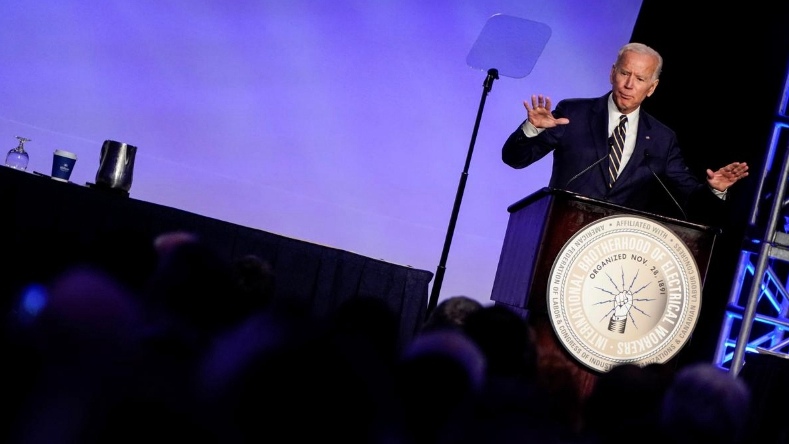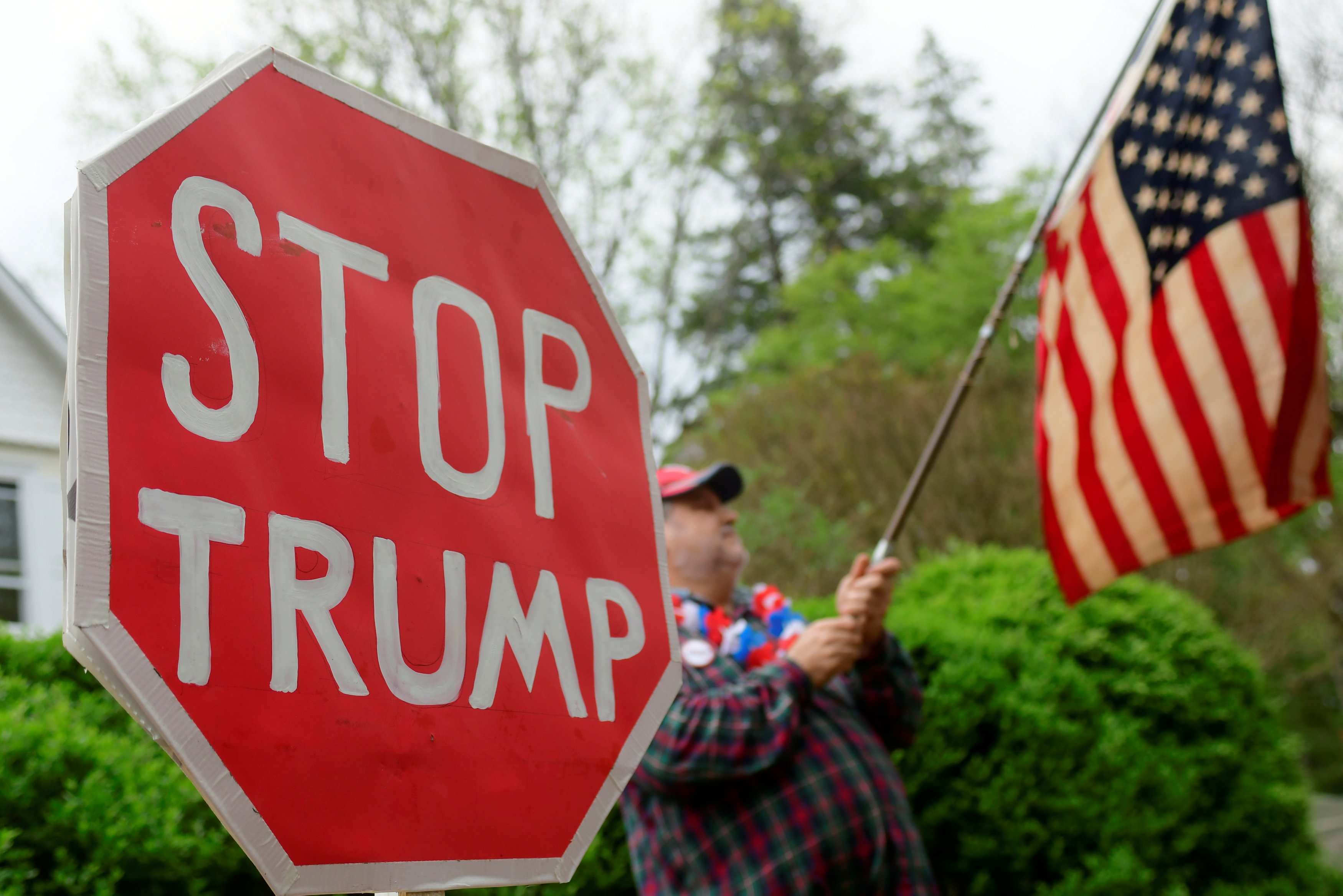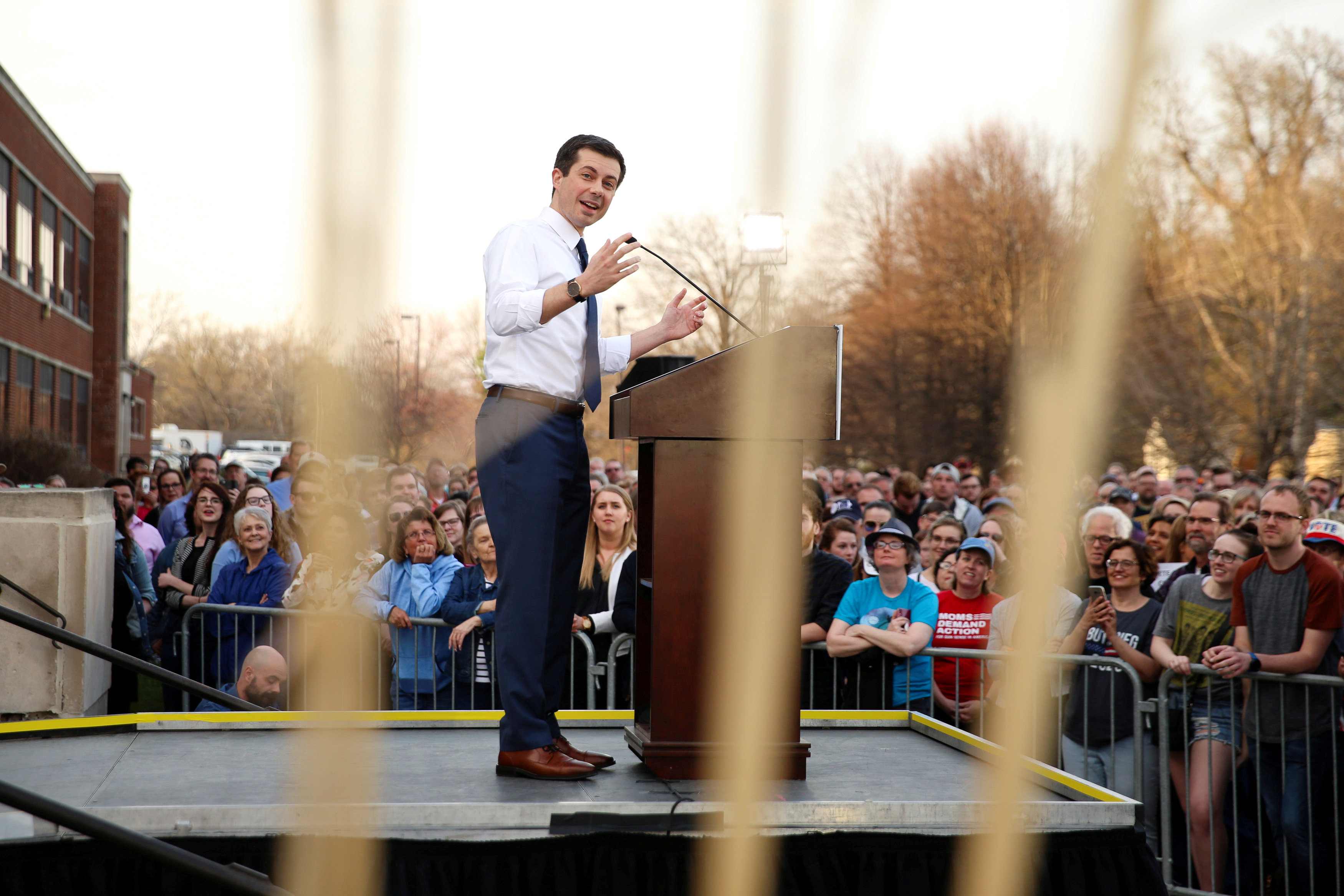
Opinion
08:59, 26-Apr-2019
Does Biden have what it takes to face Trump in 2020?
Updated
18:50, 26-Apr-2019
Chris Deacon

Editor's note: Chris Deacon is a postgraduate researcher in politics and international relations at the University of London and previously worked as an international commercial lawyer. The article reflects the author's opinion, and not necessarily the views of CGTN.
On Thursday this week, former United States vice president Joe Biden officially announced his candidacy for the Democratic Party's primaries – the contest that will decide who the party puts forward to face Donald Trump in the 2020 U.S. presidential election.
Biden joins other candidates with established reputations, such as Senator Elizabeth Warren, as well as new faces such as Pete Buttigieg, the mayor of South Bend, Indiana, who has generated excitement among young voters in particular.
Without doubt, however, Biden starts the race as one of the favorites. Simply having served as former president Barack Obama's vice president for eight years gives him an instant recognition factor among voters of which most other candidates can only dream.
They will need to work incredibly hard over the coming months to come anywhere near the same level. This gives Biden a major head start in getting his message heard.

A supporter stands with a sign and flag outside a private fundraiser for Democratic 2020 presidential candidate Joe Biden in Philadelphia, Pennsylvania,
U.S., April 25, 2019. /Reuters Photo
A supporter stands with a sign and flag outside a private fundraiser for Democratic 2020 presidential candidate Joe Biden in Philadelphia, Pennsylvania, U.S., April 25, 2019. /Reuters Photo
Biden is also already popular among voters on the national stage. Early opinion polling has shown him to be the best performing Democratic candidate against Trump in a two-way contest.
The former vice president is helped in this regard by the still-high popularity of Obama across Democrats and moderate independents. This "electability" could be of great importance in the primary process.
But Biden also has clear flaws. To begin: his age. Biden is currently 76 years old and would be 78 by the time he takes up the presidency in 2020. In contrast, Donald Trump – hardly seen as a youthful candidate in his own right – will be four years younger, having already served one term. The idea of a second presidential term for Biden ending when he is 86 seems a stretch.
Biden is not alone in this regard, however. Bernie Sanders, who lost out to Hillary Clinton in the Democratic contest to become the 2016 presidential candidate, is a year older than Biden even. This apparently presents no barriers to his immense popularity among young, left-wing progressives in the U.S.
In contrast, however, the popular newcomer Pete Buttigieg will not even have reached 40 years of age by the time he arrives in the Oval Office, were he to win in 2020. His youth and personal story have already catapulted him into the group of top candidates, despite his relative lack of experience.

2020 Democratic presidential candidate Pete Buttigieg speaks at a campaign event
in Des Moines, Iowa, U.S., April 16, 2019. /Reuters Photo
2020 Democratic presidential candidate Pete Buttigieg speaks at a campaign event in Des Moines, Iowa, U.S., April 16, 2019. /Reuters Photo
Recent months have also seen damaging accusations against Biden relating to unwanted and inappropriate touching of women. Polling currently shows that this has not hurt him greatly, but this sort of issue lurking in the background could produce more damaging revelations nearer the time of the contest.
While some may contrast these accusations with those against Trump – generally of a substantially more serious character – and the fact that they have seemingly not hurt his popularity, it must be remembered that we are only considering Biden's popularity with Democratic voters initially. Such voters are generally more sensitive to these character issues than Trump's base.
That said, Biden's own base within the Democratic Party is generally older and less progressive than that of candidates such as Bernie Sanders and Elizabeth Warren. The prominence of these accusations may depend on the extent to which rival Democratic candidates attempt to use them on the campaign trail and in debates.
The key for Biden will ultimately be whether national electability can translate into winning the Democratic contest to even reach the presidential election. Candidates in such party-based processes must anchor themselves sufficiently in their political wing to be seen as a viable candidate for their party, while also being moderate enough to appeal to the public at large should they be victorious.
Or, at least, this was once the received wisdom. The election of Donald Trump and the polarization of politics in many other Western democracies have thrown doubt on this approach.
Many U.S. progressives claim that this thinking was the mistake that led to the Democrats choosing Hillary Clinton at the last election, when the much more radical Bernie Sanders would have posed a much greater challenge to Trump.
Many months of campaigning remain ahead, but it seems almost certain that Biden will be there or thereabouts in the final throes. The overall field this time around, however, is huge, and it would be foolish to rule out a dark horse causing an upset at this stage.
(If you want to contribute and have specific expertise, please contact us at opinions@cgtn.com.)

SITEMAP
Copyright © 2018 CGTN. Beijing ICP prepared NO.16065310-3
Copyright © 2018 CGTN. Beijing ICP prepared NO.16065310-3